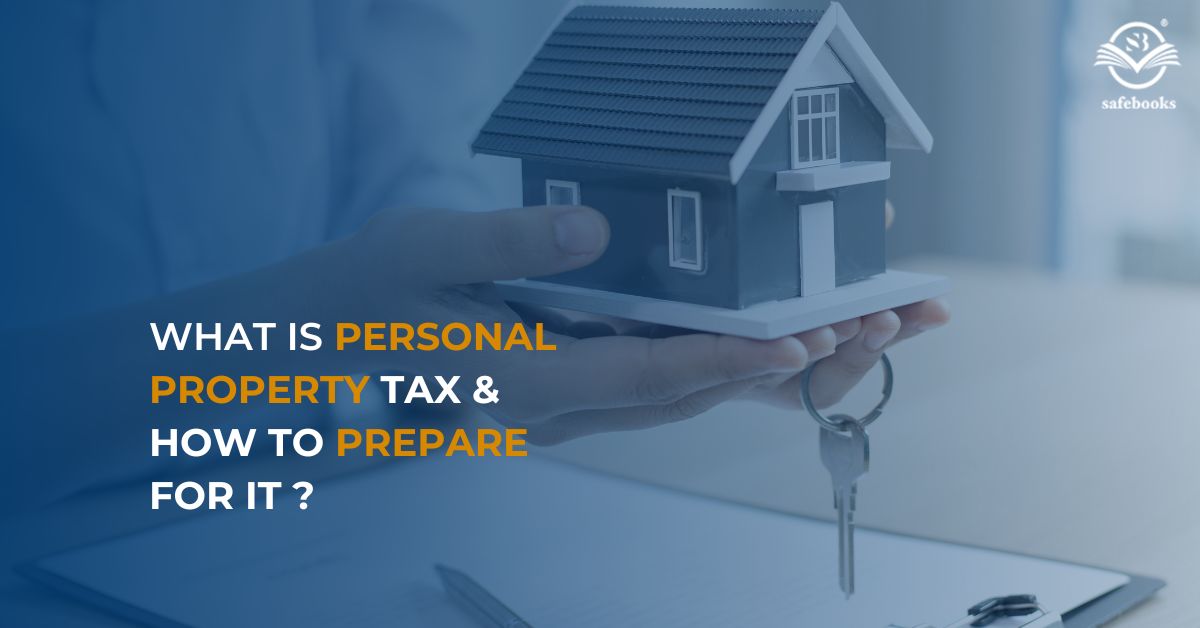What is personal property tax and how to prepare for it?
Do you own a real property, a tangible property or other valuable property? If so, you’ve likely heard of a personal property tax return. But do you know what it is and how to prepare for it? Personal property tax can be confusing and intimidating, but with the right tax preparation company, filing taxes can be made easier.
In this article, we will discuss what personal property tax is, why it is important to prepare for it, and what exemptions are available. With this information in hand, you’ll be ready to tackle your personal property or real estate taxes!

What is Personal Property Tax?
Personal Property Tax (PPT) is a tax imposed on individuals for owning certain types of property. This type of tax is generally assessed annually and can be based on the value or ownership of personal property. For example, art, jewelry, cars, boats, lands and RVs. Depending on your state or locality, personal property taxes may also apply to business-owned equipment or business personal.
How to Prepare for Personal Property Tax?
1. Determine Your Jurisdiction:
You’ll need to know if you are responsible for paying taxes in your area. Most states impose this type of tax but not all areas assess it. Contact your local taxing authority to determine if you are required to pay taxes and what personal property forms you will need to fill out to get a personal property tax receipt.
2. Calculate the Value of Your Assets:
To determine how much property tax you owe, you will need to calculate the value of all assets in your jurisdiction that are subject to tax. Pay close attention to any changes in value since last year’s assessment so that you are accurate with your calculation when filing taxes.
3. Understand Exemptions:
Many states offer exemptions for specific items such as vehicles used for business purposes or property owned by non-profit organizations or charities. Make sure you understand any exemptions available in your area so that you can take advantage of them when filing taxes.
4. File Your Taxes:
Once you have calculated the value of your taxable assets and understood any exemptions available, it’s time to file! All PPT returns must be filed on time in order for taxpayers not to be subject to late fees or penalties.
By taking the necessary steps ahead of time, you can save money and avoid unwanted fees when you file a personal property tax application. Safebooks Global offers outsourced Personal Property Tax preparation services for CPA firms.
Calculating the Amount Owed, Understanding Tax Rates and Assessments Determining Your Taxable Value, Calculating Taxes Owed
Calculating your taxes owed on personal property can be a complicated process. Here’s how to calculate the amount owed:
1. Understand Tax Rates and Assessments: Tax rates vary by state, so it’s important to know the tax rate that applies to your property location. In addition, property taxes are based on the value of your property. Before you pay your taxes, make sure your property value is correct.
2. Determine Your Taxable Value: Once you know your property’s tax rate and assessed value, you can calculate your taxable value by putting both numbers together. This will give you an estimate of how much you owe in taxes for the year.
3. Finally, take this number and subtract any applicable tax credits or exemptions to get an accurate tax figure for the year. This number is called the tax owed. Make sure to double-check all calculations before submitting any payments or filing any paperwork with local authorities regarding your taxes owed on personal property.
Exemptions for Property Taxes, Senior Citizen, Disabled, Veteran Discounts Freestanding Property and Other Potential Exemptions
Property tax exemption are available in many jurisdictions to help reduce the amount of taxes owed on personal property. Here’s an overview of the exemptions available and how they may apply to you:
1. Senior Citizen, Disabled, and Veteran Discounts: Many states offer discounts for senior citizens, disabled individuals, and veterans. These discounts can range from a few hundred dollars up to a full exemption from taxes for certain individuals. Contact your local tax authority for more information on how to qualify.
2. Freestanding Property Exemption: Depending on the jurisdiction, freestanding properties may be eligible for a partial or full exemption from property taxes. To qualify, the property must meet specific criteria dictated by the local tax authority.
3. Other Potential Exemption for property taxes: There may also be other exemptions available based on your specific situation or property type. Make sure to check with your local tax office to see if any additional exemptions are available that could help lower your total tax bill.
